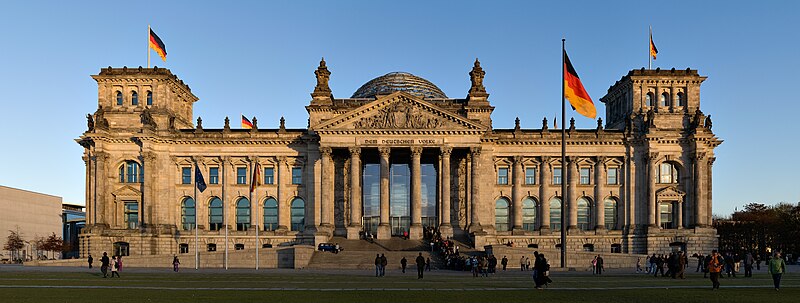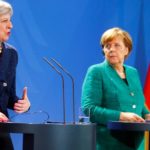
The German election for a new federal government is currently underway. This election, watched closely by Europe and the US, is not only high stakes for Germany but for the rest of the world.
The palpable tensions surrounding the war in Ukraine have been heightened by US’ negotiations with Putin, from which Zelensky was notably absent. As a result, European countries have called for larger defence budgets and are scrambling to answer the question: ‘What does our defense look like without the US?’. After Zelensky’s call for a European Army, a suggestion that has been proposed previously by other leaders such as Macron, the prospect seems to be being considered in a more practical capacity.
Turbulent times, but how does this relate to the German election? After the three party coalition led by Chancellor Olaf Scholz between Social Democrats, Free Democrats and the Green party fell to ruin in November, the country must once again choose a new government. Europe is watching for the threat of the rise of far-right parties such as the AfD (Alternative for Deutschland). Having gained popularity over the past two years and now being publicly endorsed by Elon Musk, the AfD is predicted to have its highest number of votes to date and to become Germany’s second largest political party. Running on ideas of mass deportations and abandoning climate action, they seem to be riding the wave of Trumpian politics that is sweeping the Western world.
Success in Germany is no small victory for far-right parties. Germany holds Europe’s largest economy, a heavy history and support from across the pond. Tied with the new American administration, should their victory be as large as projected this will have tangible consequences for the ongoing situation in Ukraine. It is no wonder European countries are holding their breath for the results of this election. Germany’s increased dependency on the US in the wake of Angela Merkel’s resignation in 2021 has, by many accounts, left it exposed and vulnerable. By staying allied with the US through its far-right parties, Germany retains protection but weakens the rest of Europe.
Seeing this and fearing losing votes to the AfD, Germany’s other political parties have shifted to meet them, with centre parties (both left and right) having moved along with public consensus. The centre-right conservative party, the Christian Democrats, are projected the favourites to win the election, supposedly gaining 30% of the vote (up from 24% the last election). However, with the slide of German politics to the right side of the axis, even if not the winners of the election, the AfD have succeeded in bringing the far-right agenda to the forefront of German politics.
We will soon know who wins the election and whether the AfD makes the gains it is expected to. What we can be sure of is that this time of political upheaval will only become more complex in the wake of this result. Perhaps other than Germany, the country this has the most consequences for will be Ukraine
Edited by: Evangeline Shankland
Image: Reichstag building seen from the west, before sunset, Jürgen Matern, 2007 // CC BY-SA 3.0



Average Rating